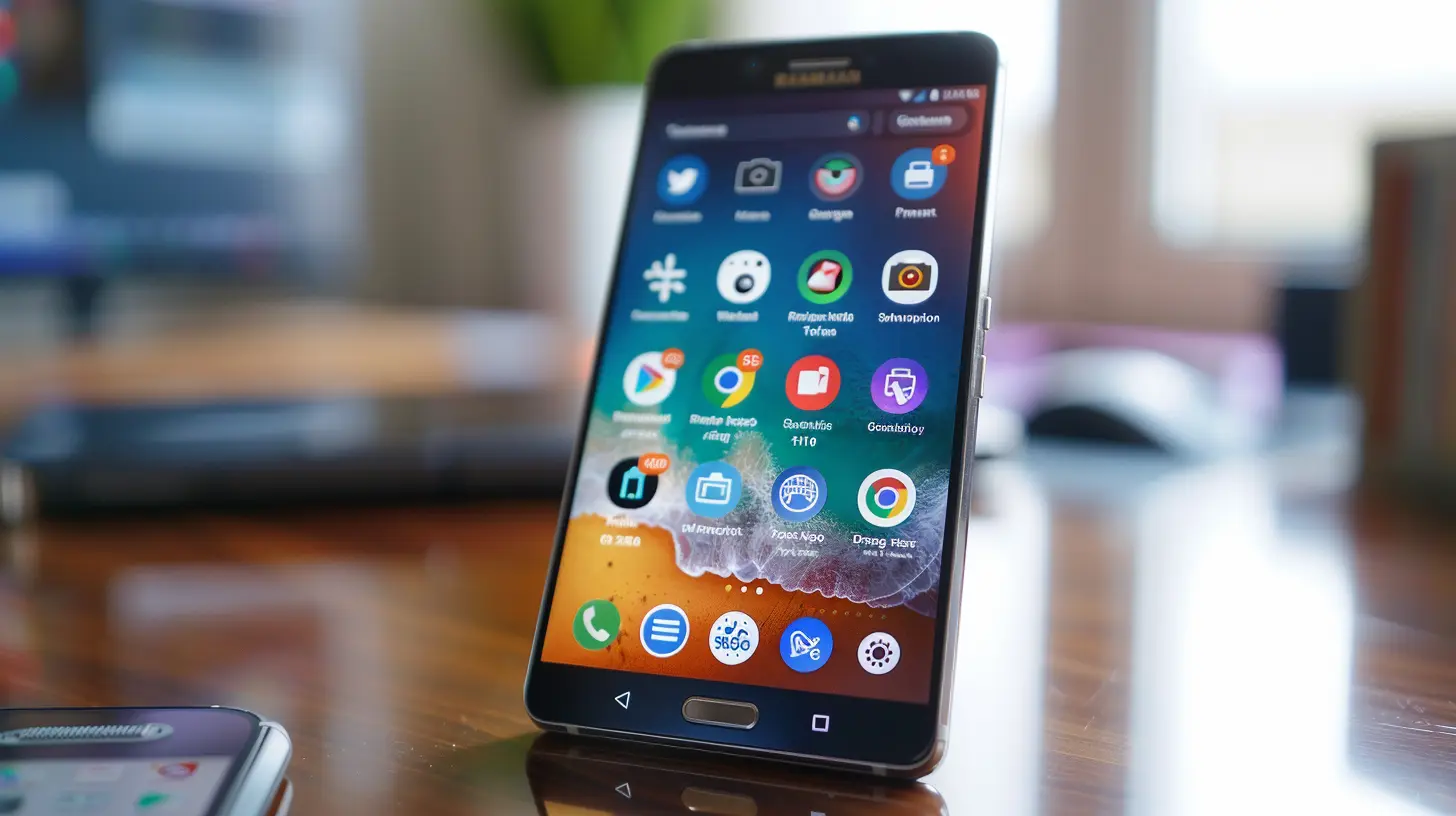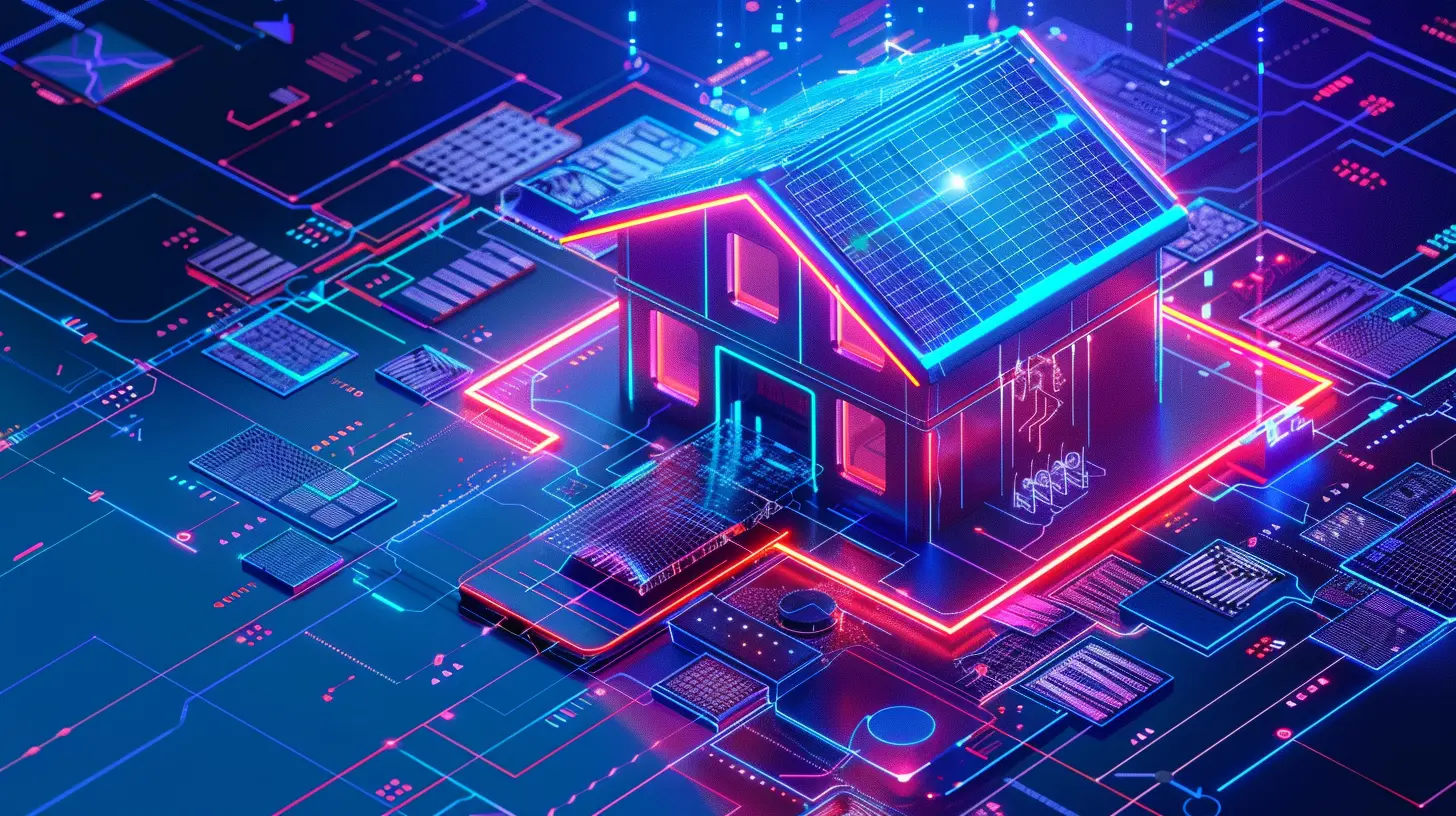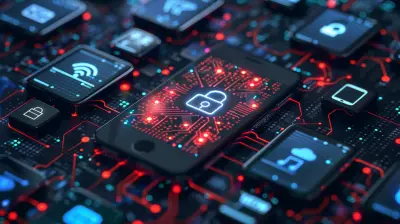How Smartphones Are Becoming a Central Hub for Smart Homes
15 November 2025
In today’s fast-paced, tech-driven world, smartphones have become essential tools that we simply can’t live without. From managing our work emails to booking a ride, and even binge-watching our favorite shows, these little devices have transformed the way we live. But you know what's even more amazing? Smartphones are now stepping into an entirely new role — acting as the control center for smart homes.
Yes, you heard that right. Your smartphone is not just for texting and social media anymore. It’s now becoming the brain behind your home. Let me take you through how this incredible transformation is happening and why it’s the future of home automation.

The Rise of Smart Homes
Before diving into how smartphones fit into this picture, let’s take a quick look at what smart homes actually are. In a nutshell, a smart home is a house equipped with a variety of connected devices that can be controlled remotely or automatically. These could range from smart lights and thermostats to security cameras and even refrigerators.But here’s the kicker: these devices don’t work in isolation. The real magic happens when they’re connected together, creating a seamless ecosystem that can be controlled from a single point—your smartphone. It’s like having a universal remote for your entire life. Sounds cool, right?

Smartphones: The Ultimate Control Center
So, why is the smartphone becoming the hub for smart homes? Well, it all boils down to convenience, accessibility, and sheer power. Let’s break it down:1. Always on Hand
Let’s face it, our phones are always with us. Whether you’re at home, at the office, or halfway across the world, you’re never more than an arm’s reach away from your smartphone. This makes it the most convenient device to control your smart home. No need to get up off the couch to adjust the thermostat or turn off the lights — just tap a button on your phone.2. User-Friendly Apps
Most smart home devices come with their own dedicated apps that are designed to be user-friendly and intuitive. These apps allow you to control everything with just a few taps. Want to dim the lights for movie night? There’s an app for that. Need to check your security cameras while you're on vacation? Open the app. And let’s not forget voice commands. Many apps are integrated with voice assistants like Siri, Google Assistant, or Alexa, making the whole experience even smoother.3. Centralized Control
One of the best things about using a smartphone as the hub for your smart home is that it can integrate multiple devices into one centralized system. Instead of having separate remotes or controls for each gadget, your smartphone can act as the one-stop-shop for everything. This means you can control your lights, thermostat, security system, and even your coffee maker, all from one app or dashboard.4. Remote Access
Imagine being able to control your home from virtually anywhere in the world. That’s another major perk of using your smartphone as the control hub. Whether you're at work or on holiday, you can check in on your home, adjust settings, and even receive notifications if something goes wrong. Forgot to lock the door? No worries, just open your phone and lock it from wherever you are. It's a game changer.
Integration with Voice Assistants
Another reason smartphones are becoming the hub for smart homes is their seamless integration with voice assistants like Google Assistant, Amazon Alexa, and Apple’s Siri. These digital assistants have made controlling smart devices easier than ever. If your hands are full or you're just feeling lazy, you can simply use your voice to issue commands.For example, you can say, “Hey Google, turn off the living room lights,” and boom—the lights are off. All you need is your smartphone or a smart speaker that's connected to your phone. It’s like having your own personal butler, but without the judgmental side-eye.
And the best part? These voice assistants are continually getting smarter. They can learn your preferences, routines, and even offer suggestions based on your daily habits. It’s not just about convenience; it’s about creating a personalized experience that fits into your life seamlessly.

Security and Privacy Concerns
Let’s be real—smart homes aren’t without their challenges, and one of the biggest concerns people have is security. With so many devices connected to the internet, the risk of hacking is a genuine worry. No one wants to think about the possibility of a hacker accessing their security cameras or unlocking their front door remotely.But here's the good news: smartphone manufacturers and smart device companies are well aware of these concerns, and they’re taking steps to ensure your home remains secure. Many devices come with encryption and multi-factor authentication, which makes it much harder for hackers to gain access.
Additionally, you can monitor your smart home’s security directly from your phone. Most security apps will alert you immediately if they detect any unusual activity, so you can take action right away. And let’s not forget about the rise of biometric authentication. With fingerprint scanners and facial recognition, your phone is more secure than ever, making it a reliable hub for your smart home.
The Role of 5G in Smart Homes
If you think smart homes are impressive now, just wait until 5G technology becomes more widespread. 5G promises faster internet speeds, lower latency, and more reliable connections, which are all critical for smart home devices that rely on real-time communication.With 5G, your smart home could become even more responsive and efficient. Imagine a world where your devices communicate instantly with each other, without any lag or delay. Your lights could adjust automatically based on the time of day, your thermostat could learn your routine and optimize heating and cooling, and your security system could notify you of any issues in real-time, all without skipping a beat.
In short, 5G is going to take smart homes — and the smartphones that control them — to the next level. It’s like upgrading from a bicycle to a supercar. The possibilities are endless.
The Future of Smart Homes and Smartphones
As technology continues to evolve, we can expect even more innovations that will make our homes smarter and our lives easier. In the near future, we could see smartphones becoming even more integrated into the fabric of our homes.Imagine walking into your house, and your phone automatically communicates with your home to adjust everything to your liking. The lights dim, your favorite playlist starts playing, and the thermostat sets itself to the perfect temperature. All without you lifting a finger.
Or, picture your home anticipating your needs before you even realize them. Maybe you’re about to leave for work, and your phone reminds you to lock the door or turn off the coffee pot. Or perhaps your home recognizes when you’re feeling stressed and adjusts the lighting and music to help you relax.
These aren’t just futuristic dreams; they’re entirely possible with the technology we have today. The potential for smartphones to become even more essential in managing our homes is huge.
Wrapping It Up
It's clear that smartphones are becoming more than just devices we use to communicate or kill time on social media. They are evolving into powerful tools that can control virtually every aspect of our lives, including our homes. With smart home technology becoming more advanced and accessible, it’s only a matter of time before smartphones become the central hub for every household.From convenience and centralized control to security and remote access, the benefits of using your smartphone as the brain of your smart home are hard to ignore. And with the advent of 5G and continued advancements in AI and machine learning, the future of smart homes is looking brighter than ever.
So, the next time you pick up your phone to check a text or scroll through Instagram, just remember—it might soon be running your entire home too.
all images in this post were generated using AI tools
Category:
SmartphonesAuthor:

Vincent Hubbard
Discussion
rate this article
1 comments
Kate McFarland
In a world where whispers of innovation dance, Smartphones weave the fabric of our homes’ romance. With each tap, a symphony of control, They cradle our lives, a digital stroll. In harmony, our spaces breathe and thrive, As technology and comfort come alive.
November 20, 2025 at 5:51 AM

Vincent Hubbard
Thank you for capturing the essence of how smartphones transform our homes into smart, connected spaces! Your poetic take beautifully highlights the harmony between technology and daily living.


